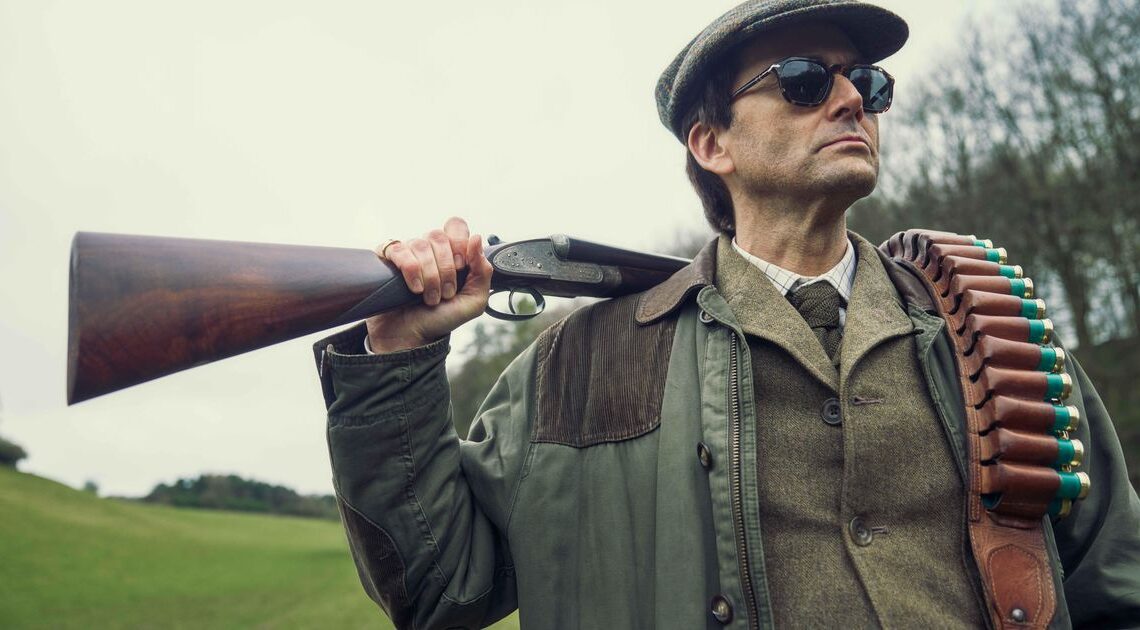On its surface, Hulu’s new eight-part series “Rivals” is a salacious “bonkbuster” about the feud between two exorbitantly privileged (and horny) British men living in the exclusive British Cotswolds in the 1980s. Set among rolling green hills and wildflower-filled forests that are part of large country estates, it is, as one character quips in the show’s opening minutes, the “prettiest prison I ever saw.”
While “prison” is probably too strong of a word to describe the privileged lives of England’s posh upper crust, it does capture the lack of agency the women in this world feel. The story, an adaptation of Jilly Cooper’s bestselling 1988 novel of the same name, sets itself up to tell the story of Lord Tony Baddingham (David Tennant), who is fighting to renew the contract for his commercial U.K. television network, Corinium, and getting periodically sidetracked by his hatred for former Olympic showjumping champion turned Tory Cabinet minister of sport and womanizing rake Rupert Campbell-Black (Alex Hassell). However, it’s really a show about how women struggle to find power within this world of powerful men.
And sex. The show has so much sex that it makes “Bridgerton” seem practically puritanical. It claims its “bonkbuster” title in its opening seconds as the frame fills with a woman grabbing a man’s bare butt before her hands (and the camera) slide up his back to reveal the always charismatic and tragically handsome Rupert shagging a gossip columnist in the bathroom of an airplane that is about to “go supersonic.”
From the first episode’s memorable moment involving naked tennis (and a full frontal) to almost every scene being about an extramarital affair or conversation about sleeping with someone, the show is both scandalous and entertaining, just like Cooper’s source material.
However, viewers shouldn’t let the titillating trappings of the show deceive them into thinking that’s all there is to the story. While “Rivals” is about people who are “hungry for sex,” it’s more than its most salacious moments. Cooper’s raunchy novels are also known for her wry social commentary, and this adaptation maintains that lens.
“Underneath the fun and the froth and the silliness, there’s a very sharp social satire on British class,” showrunner Dominic Treadwell-Collins told The New York Times. He believes this makes the show relevant. “Everyone in Britain is still obsessed with class,” he said….
Click Here to Read the Full Original Article at Culture & Arts…

